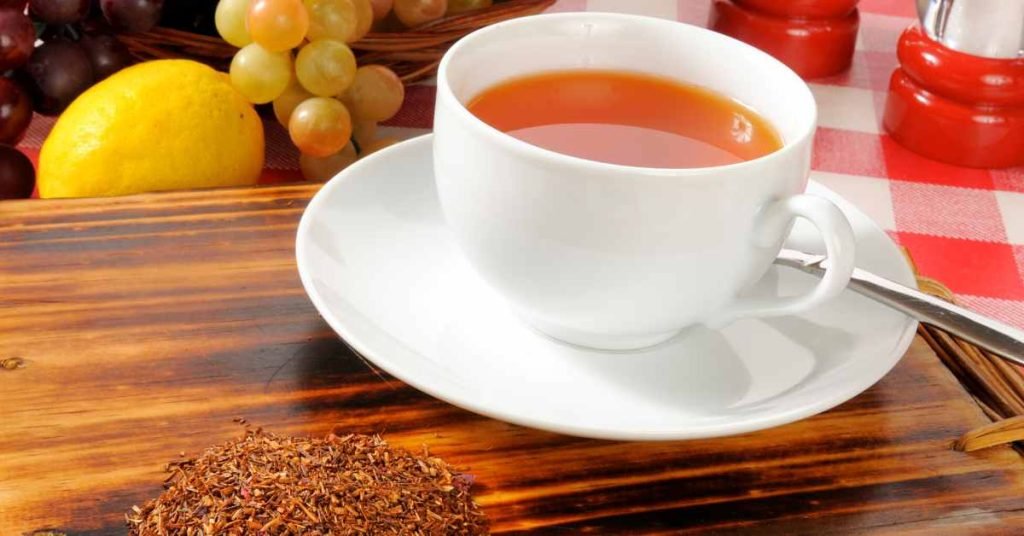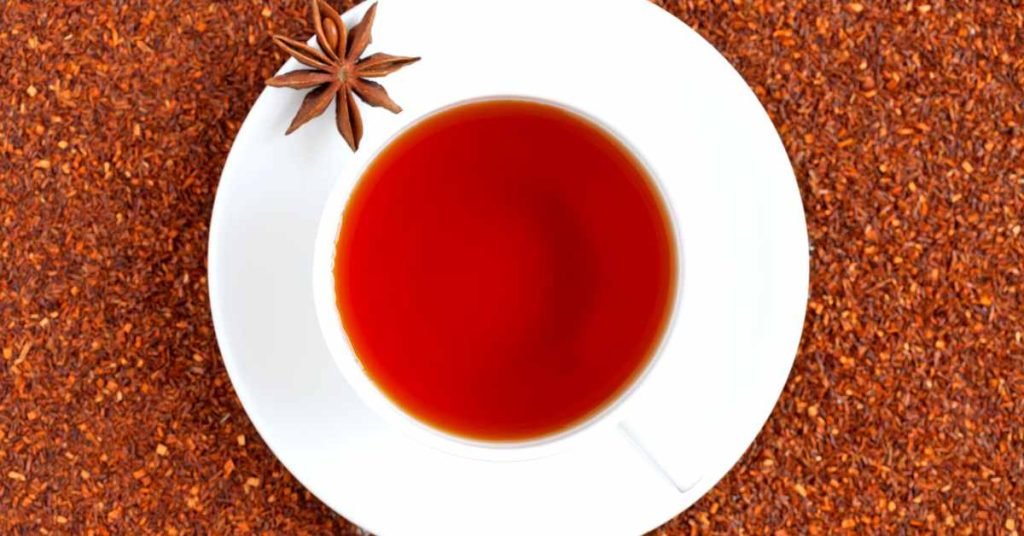Although rooibos and red tea come from two different plants and continents (Africa and Asia), many people confuse them.
But they only look at the color since their taste and health benefits differ.
We tell you the main properties of both so you can decide, based on these arguments, which one is worth adding to your shopping list.
Rooibos – Tea for the Entire Family

In reality, rooibos is not a tea as such, but a fruity and sweet infusion with an intense flavor. It is obtained from the fermented leaves of Aspalathus Linearis, a plant of South African origin that belongs to the legume family.
Rooibos tea was discovered in the Western world in the 18th century by the botanist Carl Humber.
However, it was not until the 20th century, when Benjamin Ginsberg discovered its properties and benefits for our health, that it began to be exported to the West.
Rooibos – Properties and Health Benefits
The properties of rooibos, as well as the benefits of rooibos for our health, form quite an extensive list. And no wonder.
Rooibos tea is a drink that contains a large number of components that are beneficial to our health both physically and mentally in a natural way, without caffeine, and with all the flavor.
Among all its nutritional properties, vitamin C stands out, which helps strengthen the immune system, reducing the risk of having the flu or a cold.
Another of the components that stand out in these special infusions is calcium, which will help us to maintain our bones, and a large number of minerals such as iron, potassium, copper, manganese, zinc, and magnesium.

- It does not contain theine, so it does not act as an excitant. It is ideal for children and can also be taken by pregnant women and people with hypertension problems.
- It has a high amount of vitamin C and stands out for its antioxidant power.
- It is also used to combat nervousness, restlessness, and even insomnia. The latter thanks to its richness in magnesium (and the absence of theine, of course)
- It stimulates the secretion of gastric juices, so it is very useful in slow and heavy digestions.
- If you are on a diet, its flavor makes it a great ally to avoid temptations related to sweets. Although it does not contain sugar, it will help you control snacking.
- It is ideal for athletes due to its high mineral content: iron, potassium, and zinc.
Finally, it also contains fluoride, which is necessary to harden tooth enamel and prevent tooth decay.
Red Tea: Properties and Contraindications
Red tea, which comes from China, undergoes a fermentation process that lasts at least two years. In fact, the longer the fermentation time, the higher its commercial value, although after that time it is considered to have all its properties.
Chinese red tea is produced by the Camelia Sinensis plant, just like black and green teas.

Properties
- It prevents fluid retention and eliminates toxins thanks to its diuretic action.
- It purifies the liver, activating its metabolism and favoring the rapid elimination of fats and cholesterol.
- The astringent power of its tannins helps to control diarrhea.
As with rooibos, it is a good antioxidant, helps in digestive processes and contains fluoride, with its corresponding benefit to the teeth.
Contraindications
- People with anticoagulant treatments, suffering from cardiac disorders, insomnia or nervousness, or suffering from gastric ulcer should not drink red tea.
- It is also advisable that hypertensive and pregnant women drink it in moderation (or even avoid it). Basically because the theine stimulates the central nervous system and increases blood pressure.
- The tannins we already mentioned inhibit the absorption of iron, so it is better to skip it in case of anemia.
And finally, keep in mind that if you add milk, it will lose its antioxidant properties.
Medical Disclaimer
Itsnevernotteatime.com cannot and does not contain medical/health advice. The medical/health information is provided for general and educational purposes only and is not a substitute for professional advice.
Statements made on this website regarding the herbal and natural products offered on this website have not been evaluated by the food and drug administration as the FDA does not evaluate or test herbs. This information has not been evaluated by the US Food and Drug Administration, nor has it gone through the rigorous double-blind studies required before a particular product can be deemed truly beneficial or potentially dangerous and prescribed in the treatment of any condition or disease.
It is not meant to substitute for medical advice or diagnosis provided by your physician or other medical professionals. Do not use this information to diagnose, treat or cure any illness or health condition.
Accordingly, before taking any actions based upon such information, we encourage you to consult with the appropriate professionals. We do not provide any kind of medical/health advice. The use or reliance of any information contained on this site is solely at your own risk.
Please visit this FDA website to clear any confusions you have about food and dietary products and their ingredients:
Please visit this FDA website to clear any confusions you have about food and dietary products and their ingredients: https://www.fda.gov/Food/DietarySupplements/default.htm
MEDICAL DISCLAIMER
Itsnevernotteatime.com cannot and does not contain medical/health advice. The medical/health information is provided for general and educational purposes only and is not a substitute for professional advice.




